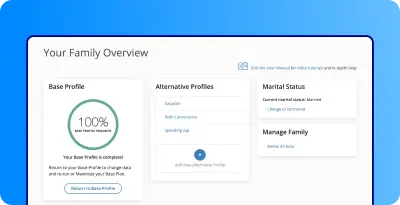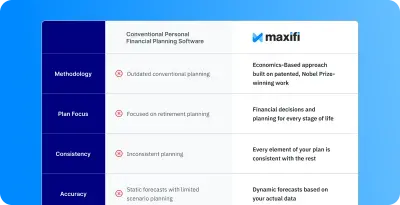Living Trust
A living trust is a legal arrangement created during your lifetime that holds and manages assets for your benefit while you are alive and transfers them to designated beneficiaries after death, typically without going through probate court. Unlike a will that only takes effect after death, a living trust operates immediately upon creation and can provide continuity if you become incapacitated, making it a key estate planning tool discussed for many individuals and families.
Understanding the differences between revocable and irrevocable living trusts, how they compare to wills, and situations where they are commonly discussed requires evaluating factors including estate complexity, privacy preferences, probate avoidance goals, and state-specific laws.

Key Takeaways
This guide explores how living trusts work, what assets they can hold, the key differences between trusts and wills, and important considerations in estate planning. Whether evaluating estate planning options or seeking to understand trust structures, these educational concepts provide a foundation for informed discussions with estate planning professionals.
- A living trust holds and manages assets during your lifetime and transfers them to beneficiaries after death, typically avoiding probate court
- Revocable living trusts can be modified or cancelled while you're alive, while irrevocable trusts cannot be changed once established
- Living trusts take effect immediately upon creation, unlike wills that only activate after death
- Assets must be retitled in the trust's name (called "funding the trust") for the trust to control them
- Living trusts avoid probate, providing faster asset distribution and maintaining privacy compared to wills
- Successor trustees manage trust assets if the grantor becomes incapacitated, providing continuity without court involvement
- Retirement accounts like 401(k)s and IRAs are typically not placed in living trusts due to tax implications
- Living trusts cost more upfront than wills but can save probate costs and time for beneficiaries
- Revocable living trusts do not provide estate tax benefits or creditor protection during the grantor's lifetime
- Many estate plans include both a living trust and a will to cover all assets and contingencies
What Is a Living Trust?
A living trust is a legal arrangement you create during your lifetime as part of estate planning to hold and manage your assets. You, as the grantor, transfer the property into the trust and name a trustee (often yourself while you are alive) to oversee those assets. The trust also names beneficiaries who will receive the assets after your death, according to the rules you set.
Living trusts are commonly discussed in estate planning because they don't have to go through probate when the grantor dies or becomes incapacitated, often avoiding lengthy delays and costs.
The grantor creates the trust and transfers assets into it, the trustee manages the assets according to the trust terms, and beneficiaries are the individuals or entities designated to receive trust assets after the grantor's death.
Types of Living Trusts
There are two primary types of living trusts:
Revocable Living Trusts
The most common type, offering flexibility and control. You can change or cancel it at any time while you are alive. However, the assets are still considered part of your taxable estate. Revocable living trusts are often discussed in estate planning for protecting assets if the grantor becomes incapacitated, as the successor trustee can take over responsibility. Revocable living trusts become irrevocable after the grantor's death.
Irrevocable Living Trusts
Cannot be changed once created. The trust owns the assets and the grantor cannot make themselves a trustee and will have to give up certain rights and control. The trustee will effectively become the legal owner. Estate planning discussions sometimes reference irrevocable trusts because they can protect the assets from lawsuits and creditors and enable the grantor to reduce their taxable estate since they no longer own the assets. Irrevocable trusts require a separate tax identification number (EIN) and must file their own tax returns.
How Living Trusts Work
A living trust goes through several stages from creation to distribution:
- Set Up the Trust: The grantor works with an attorney or advisor to decide on the trust type, draft the trust document, and name a trustee and beneficiaries.
- Transfer Assets (Funding the Trust): Property is retitled in the name of the trust. This step is crucial as assets will not be covered unless they are transferred. This process involves changing titles on real estate deeds, transferring bank accounts, and reassigning investment accounts to the trust's name.
- Management During Life: The trustee manages the assets. In most revocable trusts, the grantor remains the trustee while alive, keeping full control.
- Incapacity: If the grantor becomes incapacitated and cannot manage their affairs, the successor trustee takes over without court involvement.
- After Death: The successor trustee distributes assets to beneficiaries as directed in the trust, avoiding probate.
Many estate plans include a pour-over will, which acts as a backup to transfer any assets not placed in the trust into the trust after death, ensuring comprehensive coverage.
What Assets Can Be Placed in a Living Trust?
Many types of assets can be placed into a living trust and retitled to indicate trust ownership:
- Real Estate: Homes, land, and investment properties
- Bank Accounts: Checking and savings accounts, cash, and certificates of deposit
- Investments: Stocks, bonds, mutual funds, and brokerage accounts
- Business Interests: Ownership shares in a private company
- Valuable Personal Property: Jewelry, art, or collectibles
Estate planning professionals generally advise against placing 401(k)s or IRAs in living trusts because the IRS may consider this an early withdrawal with taxes and possible penalties. Retirement accounts, life insurance policies, and health savings accounts often use beneficiary designations instead. Coordinating these beneficiary designations with your overall estate plan is important for comprehensive planning.
Living Trust vs Will Comparison
Both a living trust and a will are tools for passing on assets, but they work in different ways. A will only takes effect after death and must go through probate, the court process for validating it. A living trust takes effect as soon as it is created, manages assets during your lifetime, and usually avoids probate after death.
The following comparison reflects common differences discussed in estate planning education:
Key Differences Between Living Trusts and Wills
- Probate: A will must go through probate, while a living trust generally does not
- Privacy: Wills become public records after death and probate; trusts are private documents
- Timing: Wills take effect only after death; trusts operate during life and after death
- Complexity and Cost: Wills are simpler and cheaper to set up; trusts require more paperwork and upfront cost
Situations Where Living Trusts Are Commonly Discussed
Estate planning discussions often reference living trusts in situations such as:
- Families who want to avoid probate to save time and legal costs as well as maintain privacy regarding their financial matters
- Individuals who want to protect assets for heirs and reduce the chance of disputes
- People with property in multiple states (to avoid probate in each)
- Those with blended families or complex financial situations
- Anyone who wants a plan in place for possible incapacity
For estates that are small or simple, wills are commonly discussed as appropriate on their own. Wills cost less to create and can ensure that property is passed on according to wishes. Some states also have simplified probate procedures for smaller estates, which may reduce the advantages of living trusts in those jurisdictions.
Estate planning involves coordinating various legal and financial tools. Comprehensive financial planning software like MaxiFi can help model how different estate planning strategies, including trust structures, may affect long-term financial goals, retirement income, and beneficiary outcomes.
Advantages and Disadvantages of Living Trusts
The following reflects characteristics commonly discussed in estate planning education. Individual circumstances vary significantly.
Advantages
- Avoids Probate: Assets usually pass directly to beneficiaries without going through court
- Privacy: Unlike wills, living trusts do not become public records after death
- Continuity: A successor trustee can manage your assets if you become incapacitated
- Control: Allows setting specific conditions for how and when beneficiaries receive property
- Flexibility: Revocable trusts can be changed or revoked during your lifetime
Disadvantages
- Cost: More expensive upfront than drafting a will and may require assistance from an estate planning attorney
- Control: For irrevocable trusts, a grantor loses ownership of and control over assets
- Paperwork: Requires retitling property into trust which can be time-consuming
- Not Always Necessary: For simple or small estates, wills are commonly discussed as sufficient
- Limited Tax Benefits: Revocable living trusts do not provide estate tax advantages during the grantor's lifetime
FAQs About Living Trusts
Important Considerations
This content reflects estate planning laws, trust regulations, probate procedures, and tax treatment as of 2025 and is subject to change through legislative action, regulatory updates, court decisions, or policy changes. Estate planning laws vary significantly by state and jurisdiction, with different requirements for trust creation, execution, probate procedures, and creditor protection. Trust costs, attorney fees, probate timelines, and court procedures are adjusted periodically and may differ in subsequent years and across different geographic locations.
This content is for educational and informational purposes only and should not be construed as legal, estate planning, tax, or professional advice. The information provided represents general educational material about living trust concepts and is not personalized to any individual's specific circumstances. Estate planning laws, trust requirements, probate procedures, and tax treatment vary significantly by state and jurisdiction. The comparison table, examples, cost ranges, probate timeline estimates, and situations discussed are for educational illustration only and do not constitute recommendations for any individual's estate planning needs. Individual circumstances including estate size, family structure, state of residence, tax situation, asset types, and personal goals significantly affect whether a living trust is appropriate and how it should be structured.
Individual estate planning decisions regarding whether to establish a living trust, choose between revocable and irrevocable structures, determine which assets to place in trust, or combine trusts with wills must be evaluated based on your unique situation, including estate size and complexity, family circumstances and potential disputes, state laws and probate costs, asset types and titling, current and projected tax situation, privacy preferences, incapacity planning needs, and long-term goals for asset distribution. What may be discussed as common in estate planning literature may not be appropriate for any specific person. Estate planning involves complex legal and tax considerations that require professional analysis of your complete situation. Please consult with a qualified estate planning attorney, tax professional, or financial advisor for personalized guidance before making any estate planning decisions or creating legal documents. This educational content does not establish any attorney-client, tax preparation, or advisory relationship.
Disclaimer
This article provides general educational information only and does not constitute legal, tax, or estate planning advice. Beneficiary designations, estate laws, and tax regulations vary significantly by state, account type, and individual circumstances. The information presented here is not intended to be a substitute for personalized legal or financial advice from qualified professionals such as estate planning attorneys, tax advisors, or financial planners. Beneficiary rules are subject to change and can have significant legal and tax implications. Before designating, changing, or making decisions about beneficiaries, you should consult with appropriate professionals who can evaluate your specific situation and applicable state and federal laws.




